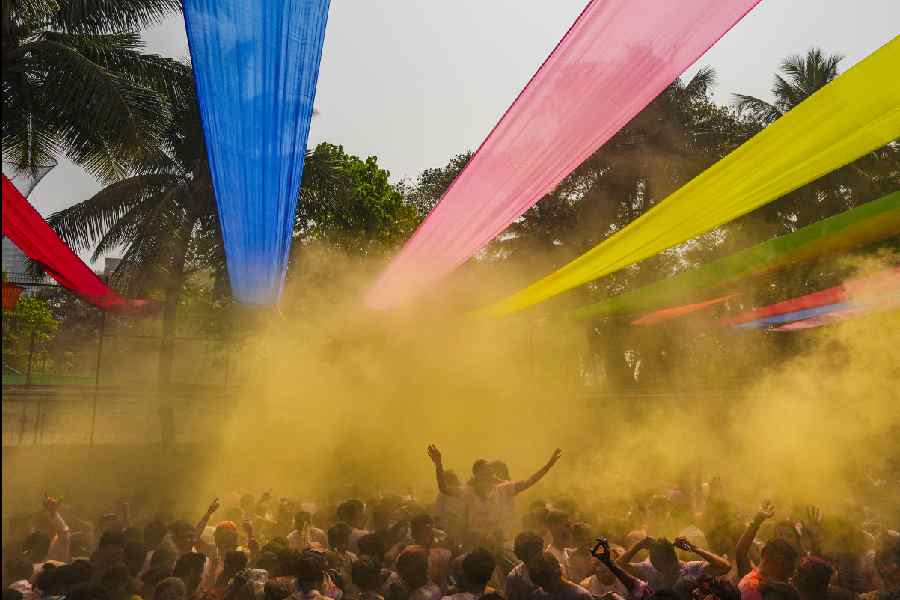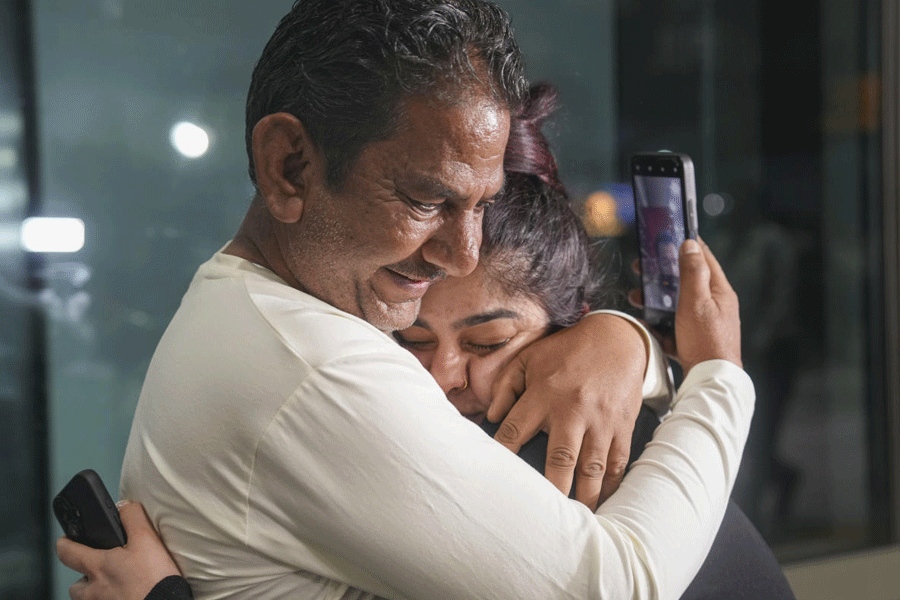 Tuesday, 03 March 2026
Tuesday, 03 March 2026
 Tuesday, 03 March 2026
Tuesday, 03 March 2026
Mumbai's water tanker body calls off four-day strike after meeting with civic body chief, reports NDTV.
Depleting water level in the seven lakes that supply drinking water to Mumbai and a strike by the Mumbai Water Tanker Association has rendered residents of India’s financial capital thirsting for water.
The Brihanmumbai Municipal Corporation on Monday invoked the Disaster Management Act, 2005 to ensure water tankers reach the citizens when demanded.
The BMC supplies around 3,900 million liters of drinking water daily; water tankers supply an additional 200 million liters.
The Disaster Management Act, 2005, gives BMC the teeth to assume control of private water tankers and ensure an uninterrupted water supply throughout the city.
The strike entered its fourth day on Monday and has disrupted water supply to the nearly 70,000 housing societies and affected on-going construction projects and the Railway services.
The MWTA called the strike to protest against the Central Ground Water Authority’s revision of its existing guidelines, which has introduced stricter regulations for water tanker operators and borewell owners.
The civic body has mandated that the well owners need to secure a licence from the Central Ground Water Authority.
At the citizen facilitation centres in the ward offices, the registered societies must place their requisition with the fees similar to those for a private tanker with an additional 25 per cent administrative surcharge along with daily water consumption data.
Civic officials have deployed ward-level teams, including police, transport authorities, and health officials, to coordinate tanker movement and manage distribution.
Police protection is being provided at the 385 filling points to maintain order and prevent any potential unrest. As a temporary relief measure, the civic body has also released 350 million litres of water from its backup reserves.
Mumbai’s seven lakes, responsible for supplying drinking water to over 1.25 crore people, have dwindled to a mere 31.23 per cent of their total usable capacity, reports News18.com
According to the Brihanmumbai Municipal Corporation (BMC), the city’s current water supply stands at a meagre 5.67 lakh million litres, a drop from last year’s levels of nearly 9 lakh million litres during the same period.
Mumbai’s water supplies at the current rate of consumption last for around 45 days without substantial rainfall or alternate water supply arrangement. Most of the larger water sources like Modak Sagar, Middle Vaitarna and Bhatsa, which are the primary source of the water system, are at critically low levels.
Around 1800 water tankers in the city provide non-potable water from ring wells and borewells.
The capacity of each such vehicle is 10,000 litres. According to estimates, these tankers supply around 200 million to 250 million litres of non-potable water per day, which is used primarily at construction sites, in shopping malls and for infrastructure projects.
These vehicles also supply 50 million litres of potable water. There are around 800 to 900 groundwater sources in Mumbai.
As people are facing a water shortage in some areas, Shiv Sena (UBT) leader Aaditya Thackeray has raised his voice on the issue.
Thackeray criticised the government’s delayed response in addressing the pressing issues of depleting lake levels and the ongoing tanker strike. He labelled the situation as “avoidable” and held the state administration accountable for “failing to prepare for a predictable summer shortage.”
Thackeray urged the BMC to release a transparent action plan and ensure equitable water distribution, particularly in slum areas and densely populated regions.
Deputy chief minister Eknath Shinde, who also heads the urban development department which controls local bodies, directed BMC commissioner Bhushan Gagrani to halt the implementation of guidelines for water tankers till June 15 in order to ensure a smooth supply of water to citizens in summer.
Despite a temporary suspension of the enforcement of these guidelines and high-level meetings involving Chief Minister Devendra Fadnavis and Union jal shakti minister C.R. Patil, the strike persists, leaving residents anxious and frustrated.
Fadnavis, through a post on X Friday, said he has directed the Mumbai municipal commissioner to find “an immediate solution” by way of finding out the “golden mean” in the revised rules and demands of tanker owners, as “a water (shortage) problem has arisen in some places”.
On Friday, CR Paatil chaired a meeting at Bandra Kurla Complex, in which representatives of tanker owners were present along with Brihanmumbai Municipal Corporation and Central Ground Water Authority officials.
Paatil instructed the CGWA administration to simplify the ‘Bhu-Neer’ online system for obtaining NOCs to make it more user-friendly.
Developed by the Central Ground Water Authority (CGWA) in collaboration with the National Informatics Centre (NIC), “Bhu-Neer” is a centralised platform for managing groundwater withdrawal permits.
The key innovations in “Bhu-Neer” include a PAN-based single ID system, a user-friendly interface and QR-coded No Objection Certificates (NOCs), making the process digital and faceless.
The portal also provides comprehensive details on groundwater policies, legal frameworks and sustainable practices, serving as a vital resource for project proponents and stakeholders.







